This documentary on suicide will make you reflect on the appropriation of life (ENG-ESP)
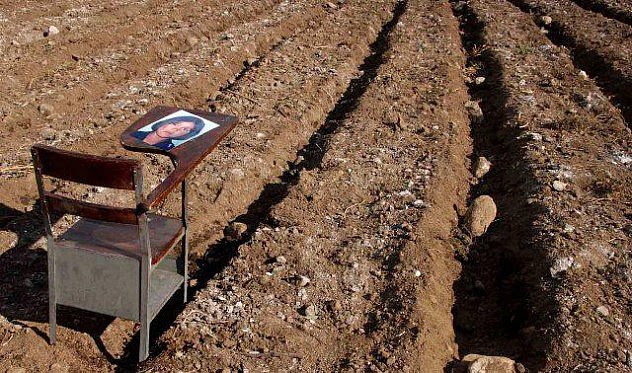
ENGLISH
El silencio de las moscas (2013), (The Silence of the Flies in English), a documentary directed by Eliezer Arias, is undoubtedly the work that has made me reflect the most about death so far.
The story of Marcelina and Mercedes, two middle-aged women who live in farming communities in Mérida, Venezuela. Beyond sharing the same geographical area, they share something else in common: their teenage daughters committed suicide.
Throughout the film, each tells her story, and we see the aftermath of the suicide on family and friends. The viewer even learns that the two young women were not the only ones in the region, but that people of different ages, especially men, have had the same fate.
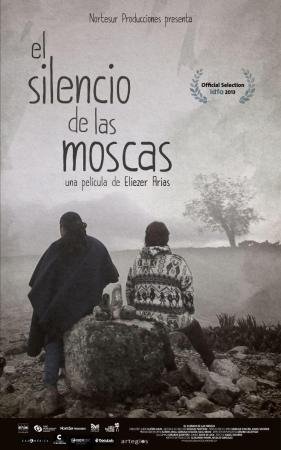
This documentary has an audiovisual language made with care and with a clear intention to do something different and attractive.
The editing does not emphasize the typical interviews looking at the camera, saying everything and nothing else.
In The Silence of the Flies, we can obviously appreciate the testimony of the protagonists, but it is their voice-over that stands out, while on screen we see the day-to-day life of each one of them: some at home looking out the window, others working the land, others taking their children to school.
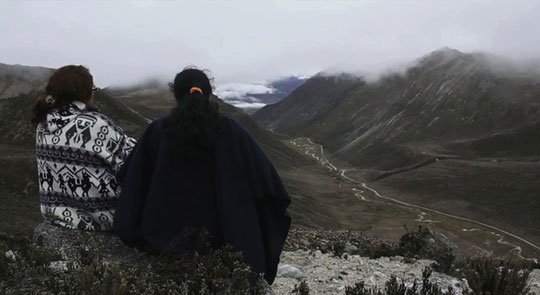
In my opinion, it shows how friends and relatives go on with their lives, as "if nothing", but in parallel, they tell what affects them, as if it were an intimate conversation with the viewer, and it is there when the interviewer-audience barrier is totally eliminated.
These are some of the many elements used to tell a story that not only afflicts a community, but an entire region.
Merida has the highest suicide rate in the country, with 19 suicides per 100,000 inhabitants, according to the NGO, Observatorio Venezolano de Violencia (Venezuelan Violence Observatory).
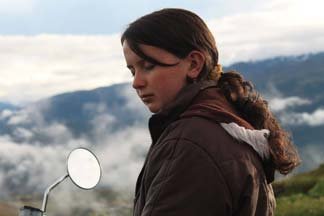
And since this is an irreparable loss and a possibly lifelong trauma, it makes me think about the appropriation of life.
By "appropriation of life", I mean that many believe that suicide is a selfish act. Although this documental does not address the issue in this way, it is inevitable not to think about it when seeing the suffering of the people who loved the victims of depression.
Whose life is it, then? Is it ours alone, or do we share it with those who love us? What should one do when these ideas are going around in one's head?
Answering such questions is a task that involves reflection, and this is what The Silence of the Flies has made me think about, especially the fly metaphor, which of course has many interpretations, and mine is that since flies are common in an agricultural region, it lends itself to linking it to the allegory of the living death of the inhabitants affected by the suicide of their loved ones, and that indeed, after all, our bodies are biodegradable, and worm food.
To watch the movies with English subtitles, please click here.
ESPAÑOL
El silencio de las moscas (2013), documental dirigido por Eliezer Arias, es sin duda la obra que más me ha hecho reflexionar acerca de la muerte hasta ahora.
Nos cuenta la historia de Marcelina y Mercedes, dos mujeres de mediana edad que viven en comunidades agrícolas en Mérida, Venezuela. Más allá de compartir la misma zona geográfica, comparten algo más en común: sus hijas adolescentes se suicidaron.
A lo largo del film cada una va relatando y vemos las secuelas del suicidio en familiares y amigos. Incluso el espectador se entera que las dos jóvenes no han sido las únicas en la región, sino que personas de distintas edades, en especial hombres, han tenido el mismo destino.
Este documental tiene un lenguaje audiovisual hecho con cuidado, y con una clara intención de hacer algo distinto y atractivo.
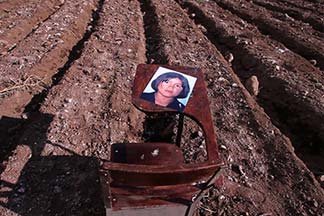
Pues en el montaje no destacan las típicas entrevistas viendo a la cámara, diciendo todo, y más nada.
En El silencio de las moscas evidentemente se aprecia el testimonio de los protagonistas, pero es su voz en off la que destaca, mientras en pantalla se ve el dìa a dìa de cada uno: algunos en su casa viendo a la ventana, otros labrando la tierra, otros llevando a sus hijos a la escuela.
Es, a mi parecer, la muestra de cómo los amigos y familiares siguen sus vidas, como “si nada”, pero en paralelo cuentan aquello que los afecta, como si se tratara de una conversación íntima con el espectador, y es allí cuando esa barrera de entrevistador-audiencia es totalmente eliminada de una manera espontánea y visualmente llamativa.
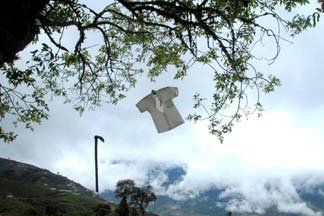
Estos son algunos de los muchos elementos utilizados para contar una historia que no solo aqueja a una comunidad, sino a una región entera.
Pues en Mérida, se ha registrado la tasa más alta de suicidios en el paìs, siendo 19 suicidios por cada 100.000 habitantes, según la ONG, Observatorio Venezolano de Violencia.
Y es que al tratarse de una pérdida irreparable y un trauma posiblemente de por vida, me hace pensar sobre la apropiación de la vida.
Con “apropiación de la vida”, me refiero a que muchos creen que el suicidio es un acto egoísta. Aunque en este documenta no se aborda el tema de esta manera, es inevitable no pensarlo al ver el sufrimiento de las personas que amaron a las víctimas de la depresión.
¿De quién es la vida entonces? ¿Solo de nosotros, o la compartimos con quienes nos aman? ¿Qué debe hacerse cuando estas ideas rondan por la cabeza?
Responder semejantes preguntas es una tarea que conlleva reflexión, y esto es lo que El silencio de las moscas me ha hecho pensar, en especial la metáfora de la mosca, que por supuesto tiene muchas interpretaciones, y la mía es que dado que las moscas son comunes en una región agrícola, se presta para enlazarlo con la alegoría de la muerte en vida de los habitantes afectados por el suicidio de sus seres queridos, y que en efecto, al fin y al cabo, nuestros cuerpos son biodegradables, y comida de gusanos.
Para ver la película, dale clic aquí.
I like this kind of genre, it makes me understand more about the complexity of the situation. I am definitely going to watch this out.
Please, let me now your thoughts on the movie.
I will after I watched it. Good morning!
Un tema súper complejo el que aborda ese fime. Por sus palabras puedo entender la intención de sus productores. No solo mostrar las condiciones que pudieron llevar a la persona a ese hecho sino los efectos que trae en sus seres queridos. Muchas veces la culpa se apodera de ellos y deja una huella que sangra toda la vida.
Así es... lo que me hace pensar a veces si el suicidio es un acto egoísta o no.
No lo creo amigo. Debemos ponernos en el lugar de esa persona w siente que ya no tiene otra opción para curar su dolor. Debe ser bien duro eso!
Así es...